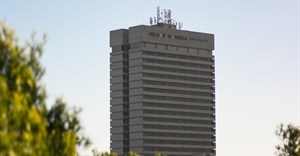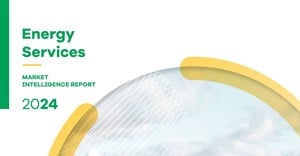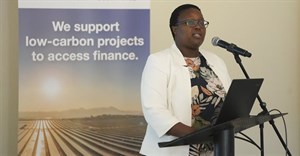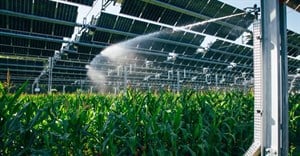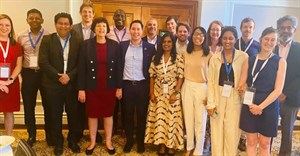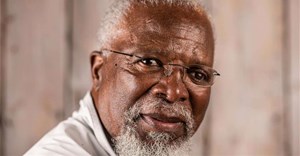
Subscribe & Follow
Advertise your job vacancies
Innovative new projects join Climate Finance Accelerator (CFA) South Africa
Fifteen innovative low-carbon projects from across South Africa have been announced as the second cohort of projects for Climate Finance Accelerator (CFA) South Africa support, following a call for proposals that attracted 166 applications.
The chosen projects come from the energy, transportation, AFOLU (agriculture, forestry and other land uses), circular economy and water sectors. They will receive tailored one-to-one and group support to help increase their chances of securing finance from South African and international investors. This follows a successful first round in 2021 that has so far seen almost of a third of projects find new partners and investors.

The CFA is part of the UK Government’s investment in South Africa's transition to a low-carbon economy. Between 2011-2021 the United Kingdom (UK) contributed over £250m in International Climate Finance to support South Africa (SA). The UK is also, alongside France, Germany, the US and EU taking forward the Just Energy Transition Partnership with South Africa.
British High Commissioner Antony Phillipson said:
“It is fantastic to see that CFA South Africa has attracted so many high-quality applications from low-carbon projects across the country. The projects selected to be part of the CFA are truly innovative and the variety of sectors that they cover demonstrates the vital role that business can play in helping to deliver green growth and tackle the climate emergency in South Africa.”To ensure the projects are in the best position to attract investment from financiers, they will receive capacity-building support in blending finance from public and private sources, advice on financial models and pitch material, as well as advice on enhancing gender equality and social inclusion (GESI).
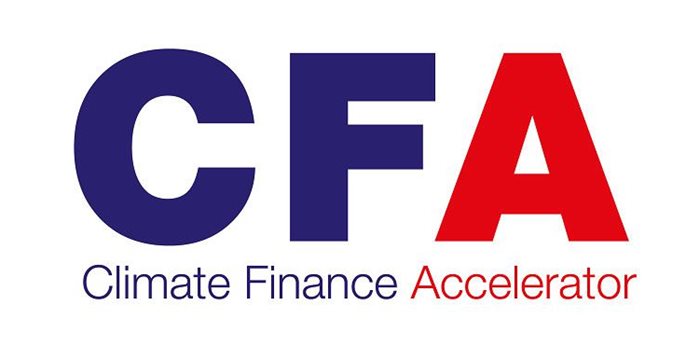
Following the capacity-building and mentoring sessions, the projects will meet with investors and financial institutions at a workshop in early 2023. This will allow project developers to further refine their financial structuring through personalised discussions with interested financial institutions. The event will also provide an opportunity for participants to network and for policymakers and others involved in the climate finance space to learn from the insights and recommendations of the CFA landscape mapping.
CEO of the National Business Initiative (NBI) Joanne Yawitch said:
“The dedication and commitment to driving low-carbon emissions shown through this applications process are indicative of an enhanced level of climate ambition within the South African private sector. We are hopeful the low-carbon projects selected will act as catalysts for further domestic and international financing and investments in SA, and help ensure our transition is just, inclusive, and economically competitive.”
CEO of GreenCape (GC) Michael Mulcahy said:
"South Africa has always been a hotbed of innovation. The creative businesses, and business models, that are being supported through the CFA show that this capability for innovation is being turned toward the green economy. The breadth of the solutions and what they could contribute to a low carbon future is inspiring. It is these practical, economically viable, commercially scalable solutions that GreenCape believes will create a thriving and prosperous continent. It is companies like these and projects like these that will give us the means to tackle climate change."The second cohort of CFA projects are:
- Alien Fuel Group – a solution to use biomass (derived from alien invasive tree species and wood waste) as a 'green' fuel. This fuel is used to supply heat and steam in industrial applications. The system provides cost-savings per ton of steam delivered and is easily retrofitted to existing fossil fuel boilers, using semi-gasification biomass burners, significantly reducing barriers to entry for potential customers.
- Blue North Sustainability – SHERPA is a cloud-based sustainability management system that supports agriculture and food businesses (from farmers to retailers) to develop, implement and report on sustainability strategies. It aids transparency, information exchange and trust building across complex supply chains, and utilises holistic content frameworks tailored to different operational contexts - covering the economic, social and environmental dimensions of a business.
- CSIR - The "grow a car" project is part of the recently established Natural Fibre Hub, a collaborative initiative between the CSIR and the Coega Development Corporation. A hemp-based industry is being developed in the Eastern Cape that will enable the formation of a full value chain, from farmers through to the development of high-value products for, amongst others, the local automotive industry.
- Flx EV - introducing electric minibus taxis to help decarbonise South Africa's primary public transport mode. Electric minibus taxis will be supplied via a financing model that is affordable and scalable. Flx EV is also developing charging facilities in minibus taxis ranks to optimize vehicle performance.
- Green Riders (Pty) Ltd - disrupting the last-mile delivery market in Southern Africa by replacing petrol and diesel driven motorbikes with e-bikes and e-motorbikes that are environmentally friendly, cost-effective and custom-made for harsh African conditions. Green Riders aims to train 50,000 unemployed South African youths to become professional delivery riders in one of the largest sustainable job-creation projects ever. This will contribute to significant poverty reduction in township communities whilst reducing carbon emissions and pollution.
- The Good Company - The Good Company democratises smart food production by means of automated and distributed vertical urban farms, managed by communities in co-operative nodes across cities, towns and rural areas. This improves food security and inclusion, whilst reducing supply chain and environmental pressure.
- LiquidGold Africa - The City Scale nutrient and water plant will be the largest urine diversion and nutrient recovery project in the world. It will service and provide safe sanitation to over 600,000 residents in the informal sector of KwaZulu-Natal. LiquidGold will produce over 1000 tons of high value fertilizer and 200 million litres of safe non-potable water per year leading to the biggest biological circular project in Africa.
- Mustapha Energy - Scaling up their flagship project in Athlone, they will use state of the art proven technology to convert industrial and municipal wastes into value furthering the circular economy. Phase 1 will manufacture a refuse derived fuel for coal offset. Phase 2 will use residual waste to produce energy through a thermal power plant process. By the end of 2024, up to 400 tons per day of municipal waste will be diverted from landfill and converted into fuel, electricity, heat, recyclables and secondary materials for the construction industry.
- NutrientLoop Corp - NutrientLoop is a cost innovator in the fast-growing market of insect protein for the animal feed market. The company has developed growing technology enabling it to dramatically reduce the cost of production for top-quality outputs at scale. This accelerates commercial adoption of black soldier fly larvae as a sustainable, socially responsible, and environmentally friendly alternative to fish and animal protein.
- Nutri Humus - Nutri Humus diverts organic waste from landfill and converts it into high quality inputs for Agriculture and Horticulture. Nutri Humus manufactures high-quality compost products that are rich in humus (decomposed plant and animal matter). Humus is an important component of healthy soils and the products manufactured by Nutri Humus contain nutrients and beneficial organisms that build healthy soils and support healthy plant growth.
- Plentify - Plentify enables cleaner, cheaper and more reliable energy. This is done this via HotBot, an award-winning load management platform that connects home appliances into virtual power plants to intelligently shift demand away from peak times and towards times when renewable energy is available, saving users and utilities money.
- SAMANJALO - Based in Mpumalanga, home to 70% of South Africa’s coal fired power stations, this project recycles coal waste to produce environmentally green products. Flyash will be mixed with technologically developed green cementitious materials to produce products such as bricks, pavers and products for precast concrete applications and masonry. This process reduces carbon emissions by up to 80% because it does not require high temperature treatment.
- SeaH4 (Pty) Ltd - Pioneering a consumer ready carbon neutral alternative to fossil fuels, SeaH4 uses algae to catalyse ocean-dissolved CO2 and the energy of the African sun into biofuel at scale. It uses established technologies and the fuel produced is compatible with the existing transport infrastructure and requires no changes to engines making it ideally suited to decarbonise the transport sector. It also improves ocean health and brings economic opportunities to rural coastal communities. The solution applies to 20,000 kilometers of desert shores, 13,000 of which are around Africa.
- Solar Turtle SA (Pty) Ltd - a socially oriented business that has been developing solar solutions to assist with job creation in informal communities since 2016. The Green Tower Energy Security as a Service includes solar PV electricity with battery back-up sold on a pay-as-you-go basis to residential communities. Partnering with existing bulk metering providers that serve thousands of housing complexes across South Africa will enable the sale of Green Tower solar electricity generated at competitive rates to home owners on a large scale.
- Westore - Building Africa’s first energy storage leasing platform. The platform will allow anyone to buy energy storage capacity assets through a cryptocurrency crowdsale. They can then use this to generate income from the storage asset that is contracted long-term to commercial customers. This aims to break the high cost barrier for energy storage systems and accelerate the use of solar plus storage systems through hybrid battery and thermal storage technologies.
GreenCape is a non-profit organisation that drives the widespread adoption of economically viable green economy solutions from South Africa.
- Dragonfly (powered by Anisoptera) wins 7th annual FNF GreenPitch Challenge12 Sep 11:18
- Top 10 green economy innovations announced for 2024 FNF GreenPitch Challenge05 Aug 13:36
- Call for entries: 2024 FNF GreenPitch Challenge11 Jun 11:59
- 2024 Green Opportunities Challenge national finalists announced21 May 14:29
- New reports forecast ~32 GW of installed renewable energy capacity in SA by 203018 Apr 15:12







